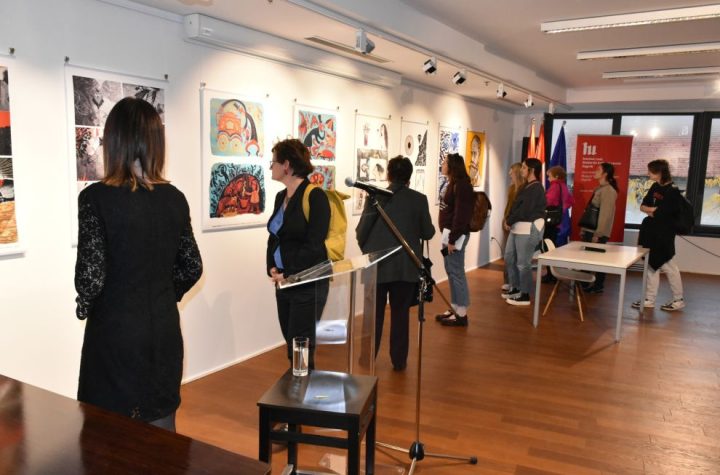 A felhívás a 18-30 év közötti hallgatókat és fiatal szakembereket szólítja meg, hogy fogalmazzák meg gondolataikat a demokrácia és a privát szektor megerősítésének lehetőségeiről a saját országukban. A 2000-3000 szavas esszéket angol nyelven kell beküldeni a következő témákban: demokratikus átmenet, gazdasági értelemben fenntartható fejlődés, korrupció.
A felhívás a 18-30 év közötti hallgatókat és fiatal szakembereket szólítja meg, hogy fogalmazzák meg gondolataikat a demokrácia és a privát szektor megerősítésének lehetőségeiről a saját országukban. A 2000-3000 szavas esszéket angol nyelven kell beküldeni a következő témákban: demokratikus átmenet, gazdasági értelemben fenntartható fejlődés, korrupció.
Beadási határidő: 2011. november 14.
Who can participate: Students and young professionals aged 18-30.
Length and language: 2,000-3,000 words. All essays must be in English.
For winners: For each category, first, second, and third place authors will receive a $1,000 honorarium, and CIPE will publish 1st, 2nd, and 3rd place essays.
Deadline: November 14, 2011
1. Categories
2. Democratic transitions:
Young people and the technology they used to share knowledge and coordinate action were at the core of movements for democracy in Tunisia and Egypt earlier this year. Meanwhile outside of the Middle East, in Southern Sudan, Nepal, and other countries, young people also have opportunities to help power new democracies.
How can youth play a significant role in newly-formed or emerging democracies? Do existing broad-based civil society groups or parties provide youth with opportunities to participate? How might youth in your country form their own groups and voice their concerns and needs as future leaders?
3. Economically-sustainable development:
One of the challenges facing democratic and economic development is making progress economically self-sustaining. Policies and practices that address the sources, not the symptoms, of underdevelopment ensure that momentum builds over time. For development programs to be sustainable on their own, they must have financial and political commitment from local stakeholders.
How can youth take ownership of the most pressing development issues and solutions in your country? What can the next generation do to build democratic and economic development that is self-sustainable for the long run? What can be done to make sure progress is locally-driven, effective, and not dependent on foreign aid?
4. Corruption:
Corruption undermines a fair and open business environment that can provide jobs, opportunities, and tax revenues for a healthy democracy. Often corruption occurs at multiple levels of society, thus making it difficult for businesses and policymakers to curtail it. Without reforming practices and incentives at the root of this problem, corruption hurts business and weakens confidence in political leaders.
How does corruption influence the way business is done in your country? How do nepotism, cronyism, and/or bribery make doing business difficult or more costly? What are some innovative, new initiatives that the next generation should take to address corruption (e.g.: are there ways to change the incentive structure to discourage such behavior)?
Judges
Christine Albrecht, External Communications Manager, Junior Chamber International
Melissa Aten-Becnel, Senior Research and Conferences Officer, National Endowment for Democracy
Camelia Bulat, Program Director, CIPE Romania
John Callebaut, Asia Regional Director, CIPE
Karen Kerrigan, President & CEO, Small Business & Entrepreneurship Council
David Shelby, Director of Near East Office for International Information Programs Bureau, Department of State
Hammad Siddiqui, Senior Program Manager, CIPE Pakistan
Robin Sitoula, Executive Director, Prosperity Foundation
Carmen Stanila, Deputy Director, CIPE Romania
Each year, the Center for International Private Enterprise invites young people to share their ideas on how youth can help strengthen democracy and the private sector. For questions or concerns, please email essay@cipe.org.
Web: http://www.cipe.org/













